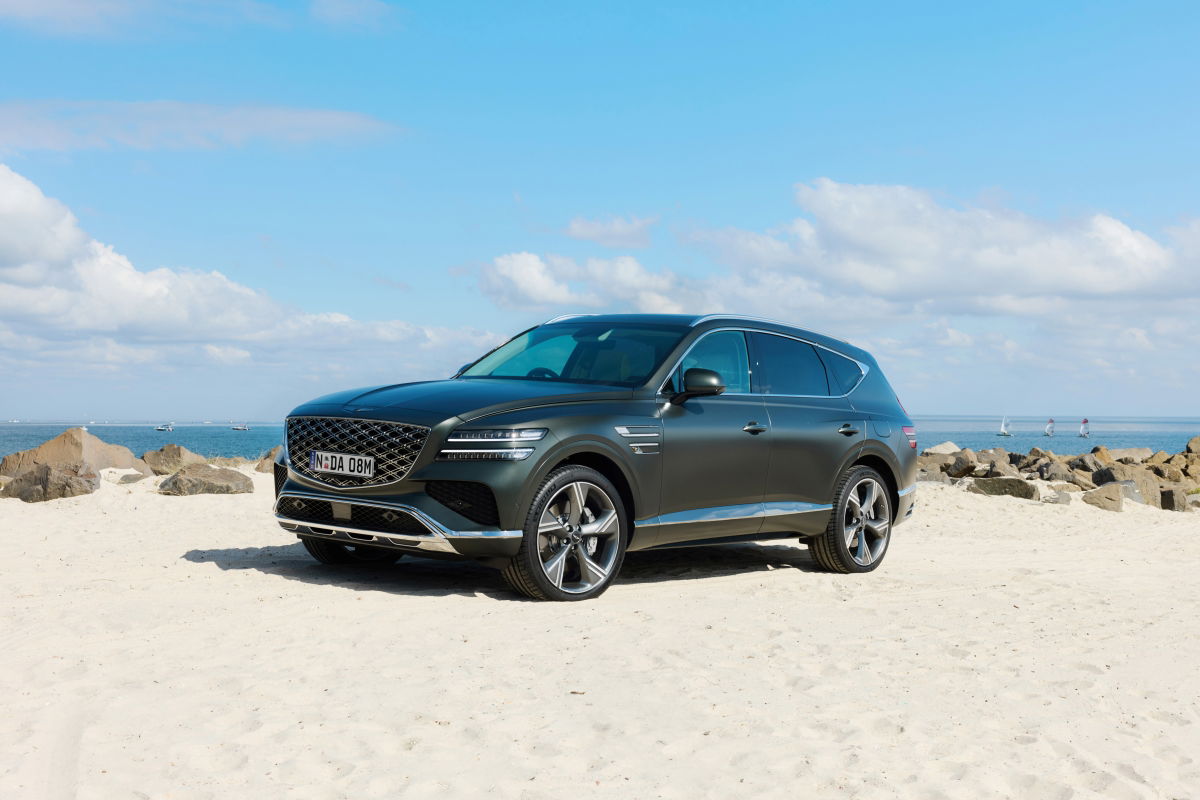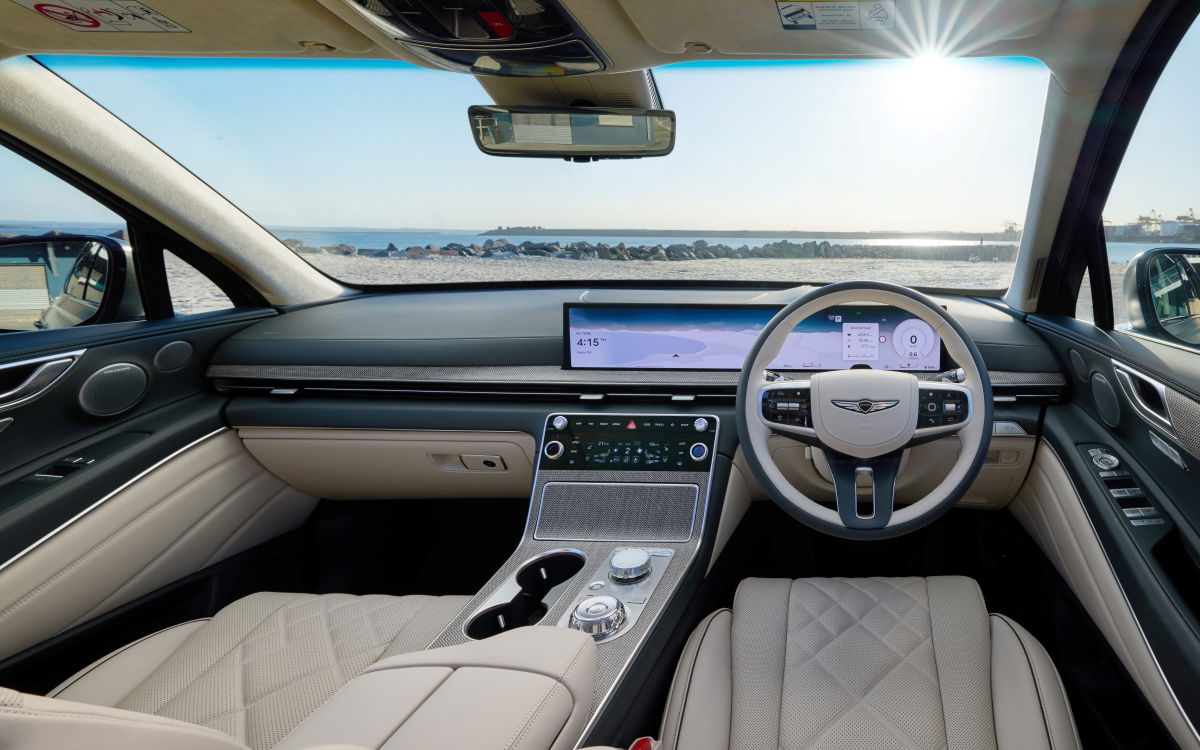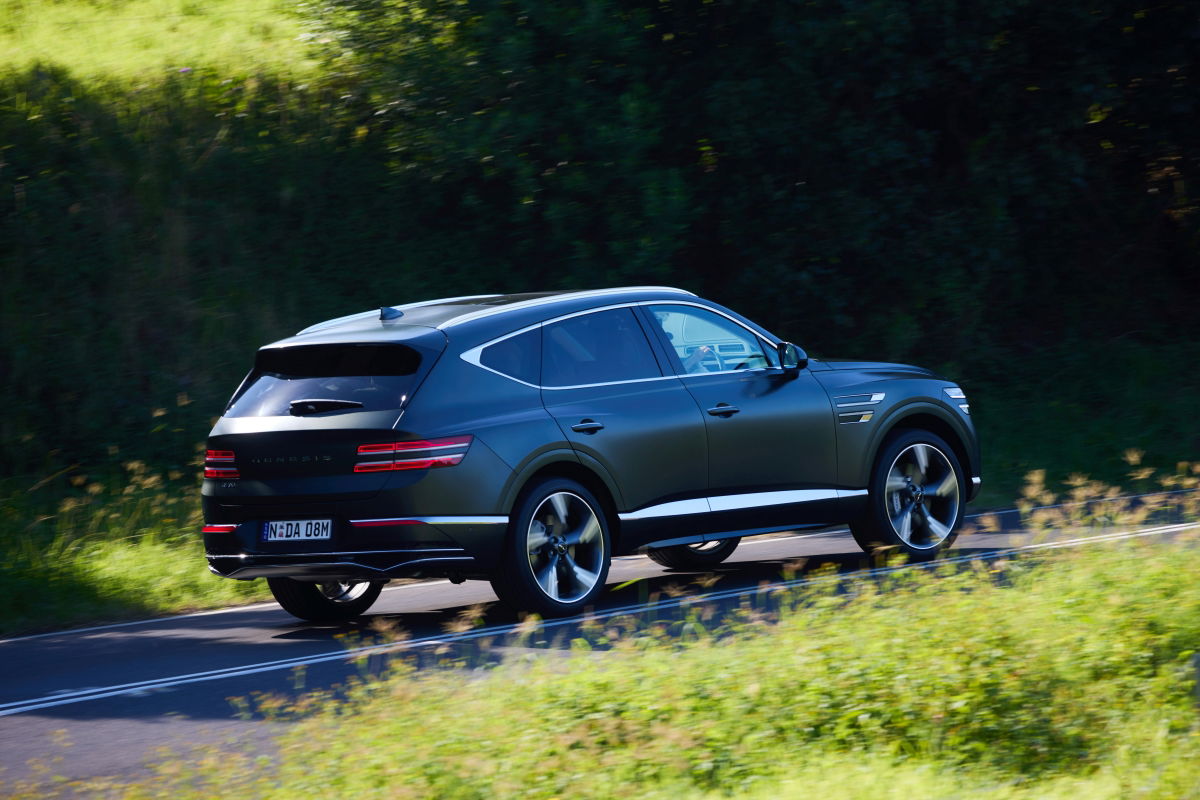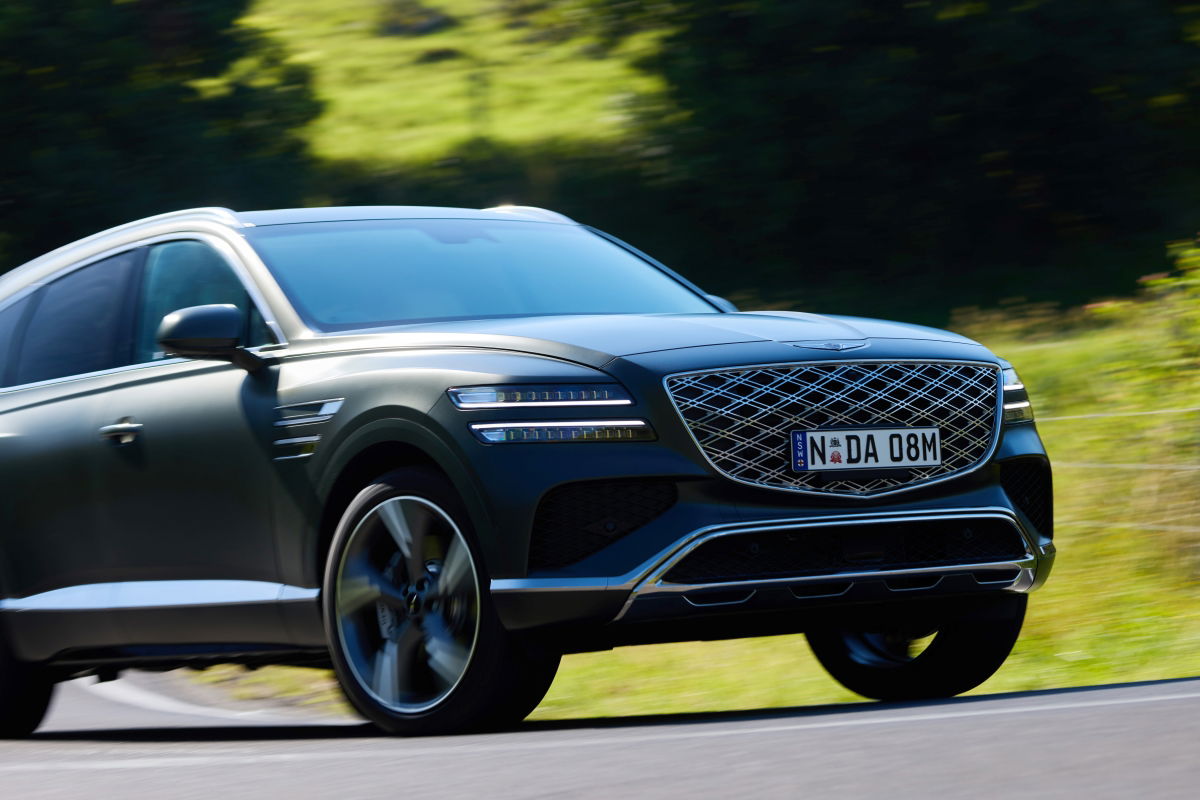
Australians don’t like to take risks with their luxury cars. It’s why the German ‘Big Three’ (BMW, Mercedes-Benz and Audi) have dominated the sales race, and it’s why it has taken brands like Lexus, Volvo and Land Rover decades to be competitive.
Genesis will be hoping it doesn’t take decades for people to consider it a serious challenger to its German rivals. The luxury division of the Hyundai Motor Company, Genesis has been in Australia for a decade (launching the Hyundai Genesis sedan in 2014) but ramped up its stand-alone status and made a more concerted premium push in the last five or so years.
REVIEW: We test the new Genesis GV80 Coupe – luxury with a twist
Its latest offering is the update of its large SUV, the GV80, which is a direct competitor to the likes of the BMW X5, Mercedes-Benz GLE and Audi Q7. In other words, right at the heart of the luxury market.
To ensure it has a fighting chance, Genesis has doubled-down on its luxury ambitions and opted for a more premium (and more expensive) offering for 2024 and beyond. The updated GV80 features a dramatically overhauled interior, the centrepiece of which is a huge 27-inch OLED display that acts as the instrument and infotainment screen. Unlike most other luxury cars that have a similar set-up but split across two screens in a single housing, the Genesis version is just one continuous display.

There’s also design and the materials used in the cabin to elevate the sense of luxury. There’s nine interior colour options as well as the choice of inlays made from real wood and genuine carbon fibre. A high-end Bang & Olufsen sound system and a UV-C sterilisation system complete the luxurious interior enhancements.
Certainly climbing aboard the GV80 makes you instantly feel like you are driving something properly premium. There’s no hint that it’s related to a Hyundai, it looks and feels bespoke in every aspect. The quality of the materials really stands out too, adding to the feeling of being pampered.
READ MORE: Genesis goes AMG hunting
That feeling continues when you press the start button, which fires up the 3.5-litre turbocharged V6 petrol engine. It’s the only engine now available with the GV80, as Genesis Australia dropped the previously available V6 turbo diesel and four-cylinder turbo petrol engines to focus on a simplified line-up.
That’s no bad thing because the V6 petrol makes a healthy 279kW of power and 530Nm of torque, which provides solid if unspectacular performance, but it’s the kind of engine that luxury buyers will expect; quiet, relaxed and powerful enough.

The same is true of the driving experience, it doesn’t reset the segment benchmark but it holds its own against its competition. It has the level of quietness and refinement you expect from a modern luxury car, combined with a compliant ride.
The only major downside to the driving experience is the steady stream of beeps and boops from the car’s multitude of safety systems. The modern demands for so much tech – from driver attention assist to lane keeping to speed monitor – makes driving safer in theory but also adds a level of distraction that nullifies it somewhat.
Still, it’s not enough to tarnish the overall premium experience the GV80 offers, so it will be interesting to watch and see if Genesis can lure more buyers to its more luxurious offerings. Sales for the brand are down nearly 20 per cent in the first half of 2024, which is a surprising turn after steady growth previously.
But there is hope for Genesis, and it comes in the form of the Lexus RX. Toyota’s luxury brand has taken the slow and steady approach, chipping away at the German brands and has successfully carved itself a space relatively close to BMW and Benz. Specifically, the RX is its large SUV and it out-sold both the Q7 and GLE in the first half of 2024.
But that’s the future, in the here and now, the GV80 is a car worthy of consideration for anyone looking at a Lexus RX, Audi Q7, BMW X5 and similar.













Discussion about this post